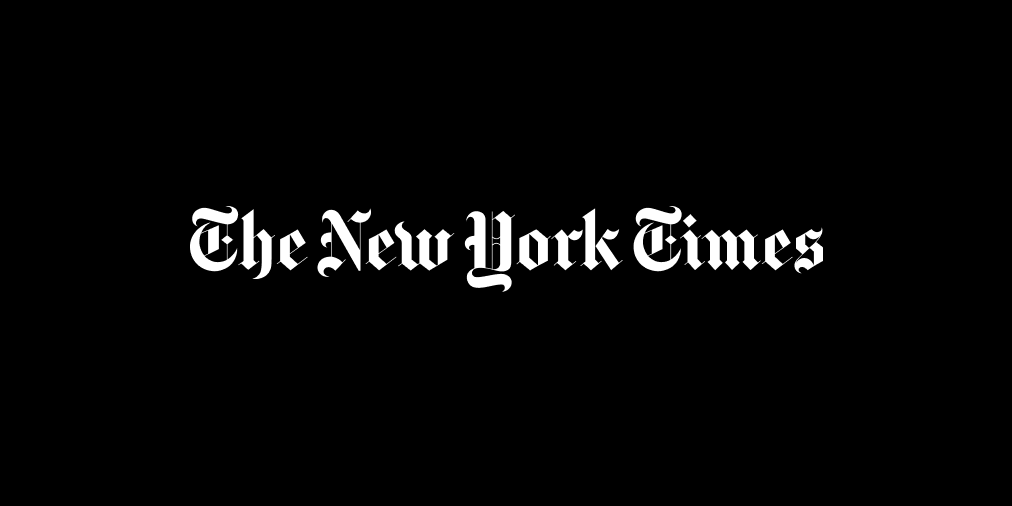
WASHINGTON — President Biden warned President Vladimir V. Putin of Russia on Tuesday that an invasion of Ukraine would result in heavy economic penalties for him and lead NATO to reposition its troops in Europe, measures that he said would go well beyond the West’s response to Russia’s annexation of Crimea seven years ago.
In a two-hour video conference that American and Russian officials both described as tense, but occasionally pierced by humor, Mr. Biden also said an invasion would end Russia’s hopes of completing the Nord Stream II gas pipeline to Europe, which would be a major source of energy revenue. Hours after the negotiation was over, a senior State Department official, Victoria Nuland, confirmed that in a Senate hearing, saying, “I think if President Putin moves on Ukraine, our expectation is that the pipeline will be suspended.”
“There was no finger-wagging, but the president was crystal clear,’’ Jake Sullivan, Mr. Biden’s national security adviser, told reporters after the session, which Mr. Biden conducted from the White House Situation Room and Mr. Putin from his retreat on the Black Sea. But he said that Mr. Biden had told the Russian leader that “things we did not do in 2014, we are prepared to do now.”
In recent days, American officials have said that list, being composed by the Treasury Department in collaboration with European allies, ranges from blocking Russian companies from access to global capital markets to financial penalties aimed at the Russian elite, especially the oligarchs who have helped finance and support Mr. Putin. The most extreme step — one that is still being debated — would be to cut Russia off from the global financial settlement system, called SWIFT, but some European officials have feared that step might provoke too harsh a counterreaction.
It is too early to tell whether the much anticipated conversation, whose details were hard to elicit as both the White House and the Kremlin put their spin on it, will alleviate the immediate crisis in Ukraine, where roughly 100,000 Russian troops have massed, with more equipment and personnel arriving every day. Mr. Putin gave no indication of his ultimate intent, officials said, or whether he was actually contemplating an invasion or trying to get the West to pay attention to his demands by manufacturing a crisis.
But it had the feel of a return to the East-West politics of the Cold War, when NATO strategy was focused on how it would halt an invasion from the former Soviet Union, and Moscow was seeking respect and deference. At stake was the continued independence of Ukraine, which won its independence after the fall of the Soviet Union, part of a collapse Mr. Putin has described as a tragedy of 20th century geopolitics. And White House aides were highly aware that while their options were limited — there is no discussion of direct military involvement by the United States — failure to deter Mr. Putin could be seen as a sign of weakness around the world, especially by China.
While the two men met, Ms. Nuland, who has angered Mr. Putin in past years because of her role in bolstering Ukraine’s ouster of a leader who was considered a puppet to Moscow, warned that the Russian leader seemed emboldened.
“Much of this comes right out of Putin’s 2014 playbook, but this time, it is much larger, and on a much more lethal scale,’’ she told the Senate Foreign Relations Committee. “So despite our uncertainty about exact intentions and timing, we must prepare with our allies and partners for all contingencies, even as we push Putin to reverse course.”
The evening before the conference between Mr. Biden and Mr. Putin, the director of the C.I.A., William J. Burns, a former American ambassador to Russia, said in the next few months — as the ground freezes in the marshy territory on the Russia-Ukraine border and Russia completes its military buildup — Mr. Putin may conclude the time to act is ripe.
Understand the Escalating Tensions Over Ukraine
A brewing conflict. Antagonism between Ukraine and Russia has been simmering since 2014, when the Russian military crossed into Ukrainian territory, annexing Crimea and whipping up a rebellion in the east. A tenuous cease-fire was reached in 2015, but peace has been elusive.
“I think tactically, as President Putin probably looks at this winter at the next few months, he may see a more favorable landscape,” Mr. Burns said.
Speaking to a Wall Street Journal forum, he said that in Mr. Putin’s view the major European allies are “distracted with the transition beyond Chancellor Merkel in Germany,” and with France preparing for presidential elections next spring, “he sees himself in a position of relative economic strength compared to where the Russian economy was a couple of years ago.”
Mr. Biden sought to change that view on Tuesday morning, and Mr. Sullivan argued that because the Nord Stream pipeline was not yet operating, its fate was leverage for the United States and its allies.






